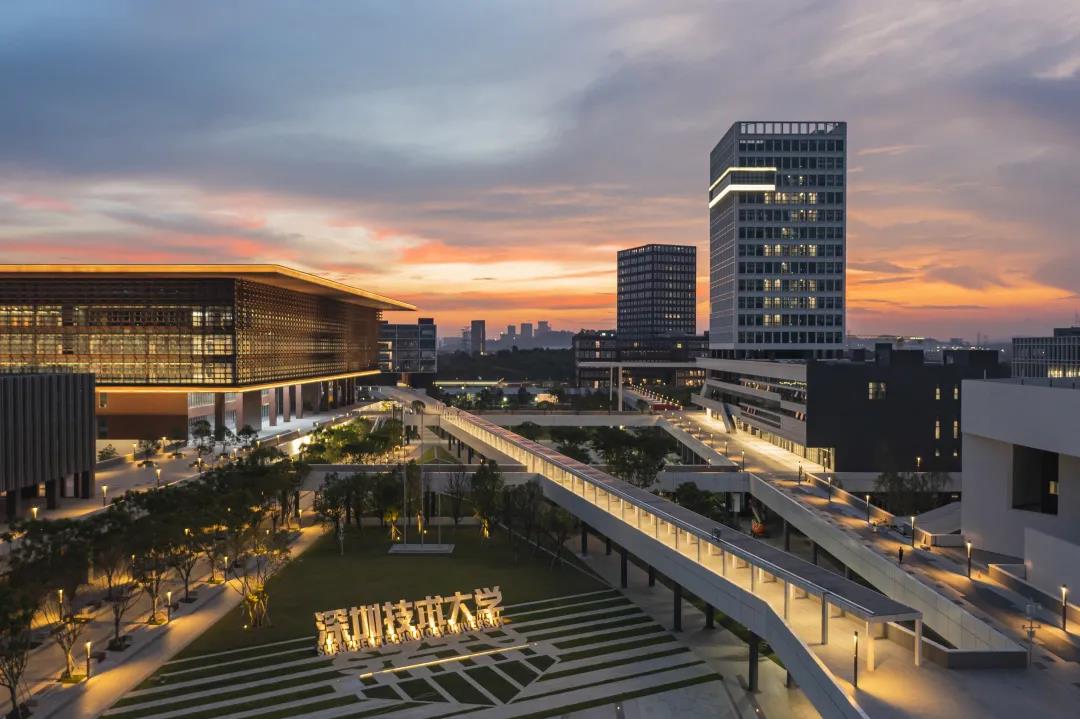On November 20, the 2nd Guangdong-Hong Kong-Macao Greater Bay Area Forum on Biomedicine and Smart Healthcare and Seminar on the Establishment of Master’s Degree in Biomedical Engineering was successfully held at Shenzhen Technology University (SZTU). Prof. Liang Yongsheng, vice president of SZTU, acted as the chairman of advisory committee of the forum. Prof. Hu Junqing, dean of College of Health Science and Environmental Engineering of SZTU, and Prof. Zhai Jianpang, dean of the Graduate School, acted as the chairmen of the forum. The vice chairmen were Associate Prof. He Shuqing, Prof. Kang Yan and Prof. Chen Lingling from College of Health Science and Environmental Engineering. Over 100 teachers and students attended the on-site event.
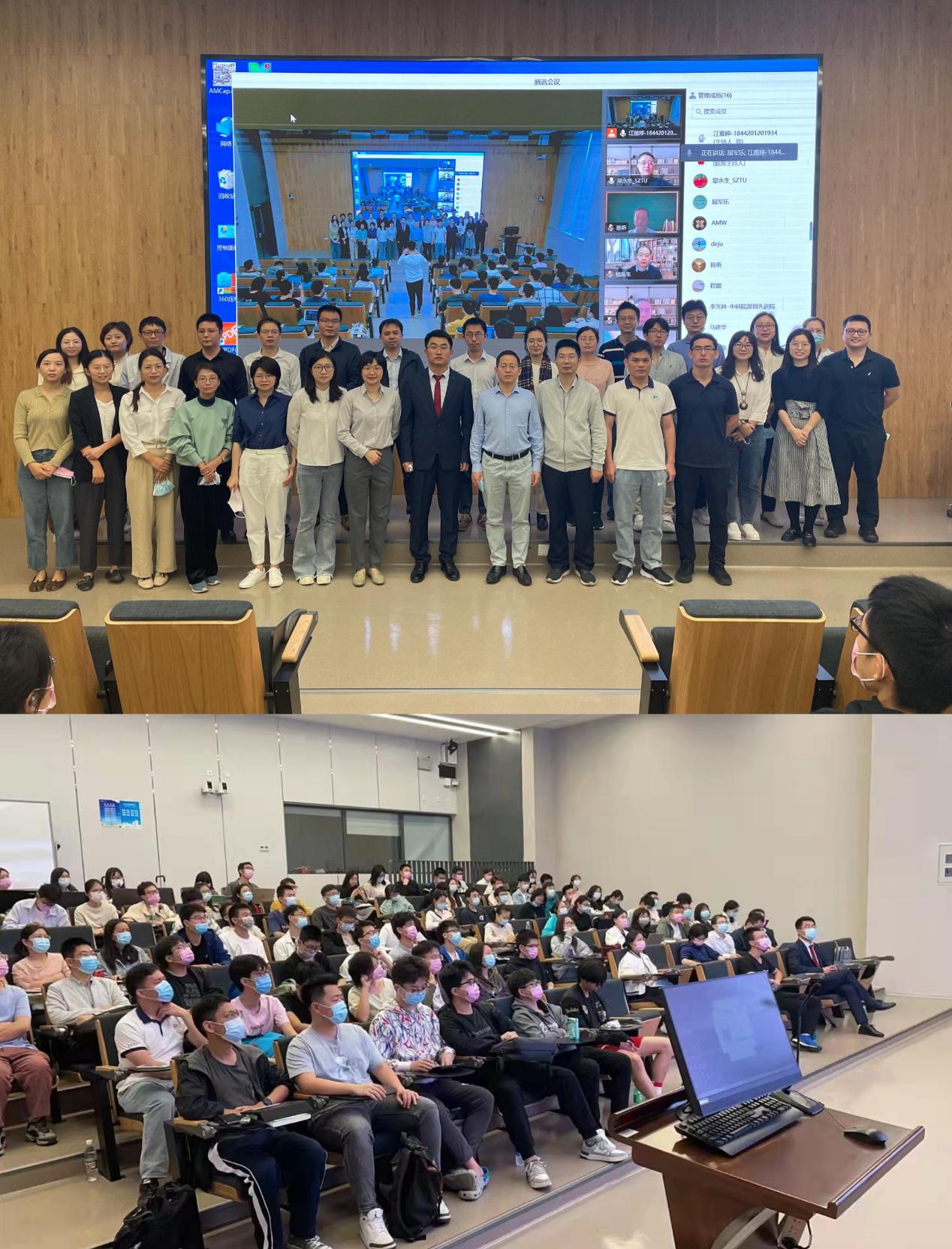
The attendees both online and offline [Photo/College of Health Science and Environmental Engineering]
The Guangdong-Hong Kong-Macao Greater Bay Area is one of China’s most open and economically vigorous regions and plays an important strategic role in the national development. This forum was carried on around cutting-edge topics including smart medical devices, smart biomaterials, medical artificial intelligence (AI) and biomedical testing, and provided a platform for experts and scholars in academia and industries to exchange new ideas and discuss new technologies and products. Besides, establishing the master's degree in biomedical engineering is an important measure to improve the core competitiveness and graduate education of SZTU. Holding the forum not only enables SZTU teachers to communicate with and learn from each other but also helps enhance the academic research and postgraduate training of the College of Health Science and Environmental Engineering.
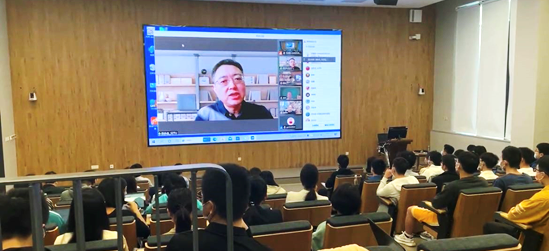
Prof. Liang Yongsheng, vice president of SZTU [Photo/https://www.sztu.edu.cn/]
Prof. Liang Yongsheng delivered an opening speech online. He stated that biomedical engineering is an interdisciplinary subject, which means that the development of smart medical devices, smart biomaterials, medical AI and biomedical testing requires cooperation among experts and scholars in different fields to gather all advantages and make distinctive achievements. He hoped the College of Health Science and Environmental Engineering could take advantage of the unique strength of the Greater Bay Area to cultivate distinctive talents in biomedical engineering, and that this forum could provide intellectual support for the academia and industries.
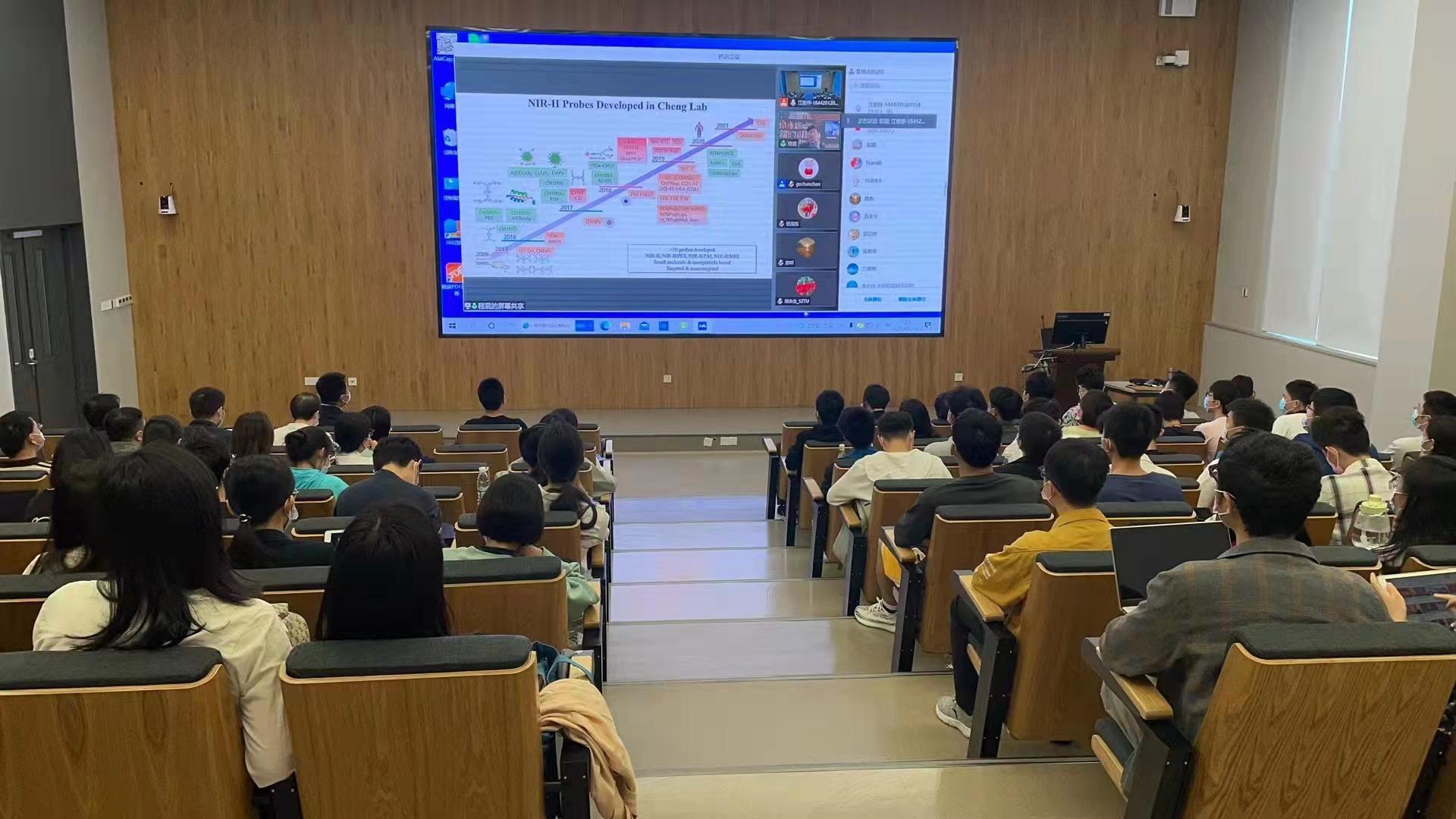
Prof. Cheng Zhen from the Shanghai Institute of Materia Medica (SIMM), Chinese Academy of Sciences (CAS), gives a research report on the second near-infrared (NIR-II) diagnosis and treatment materials. [Photo/College of Health Science and Environmental Engineering]
During the forum, a total of 13 keynote reports were given by experts from different universities and institutes in China, covering topics including biomedical imaging, medical devices, biomaterials, medical testing, and experience in the establishment of master’s degree in biomedical engineering. The experts also shared their research results and had academic discussions with the teachers and students present.
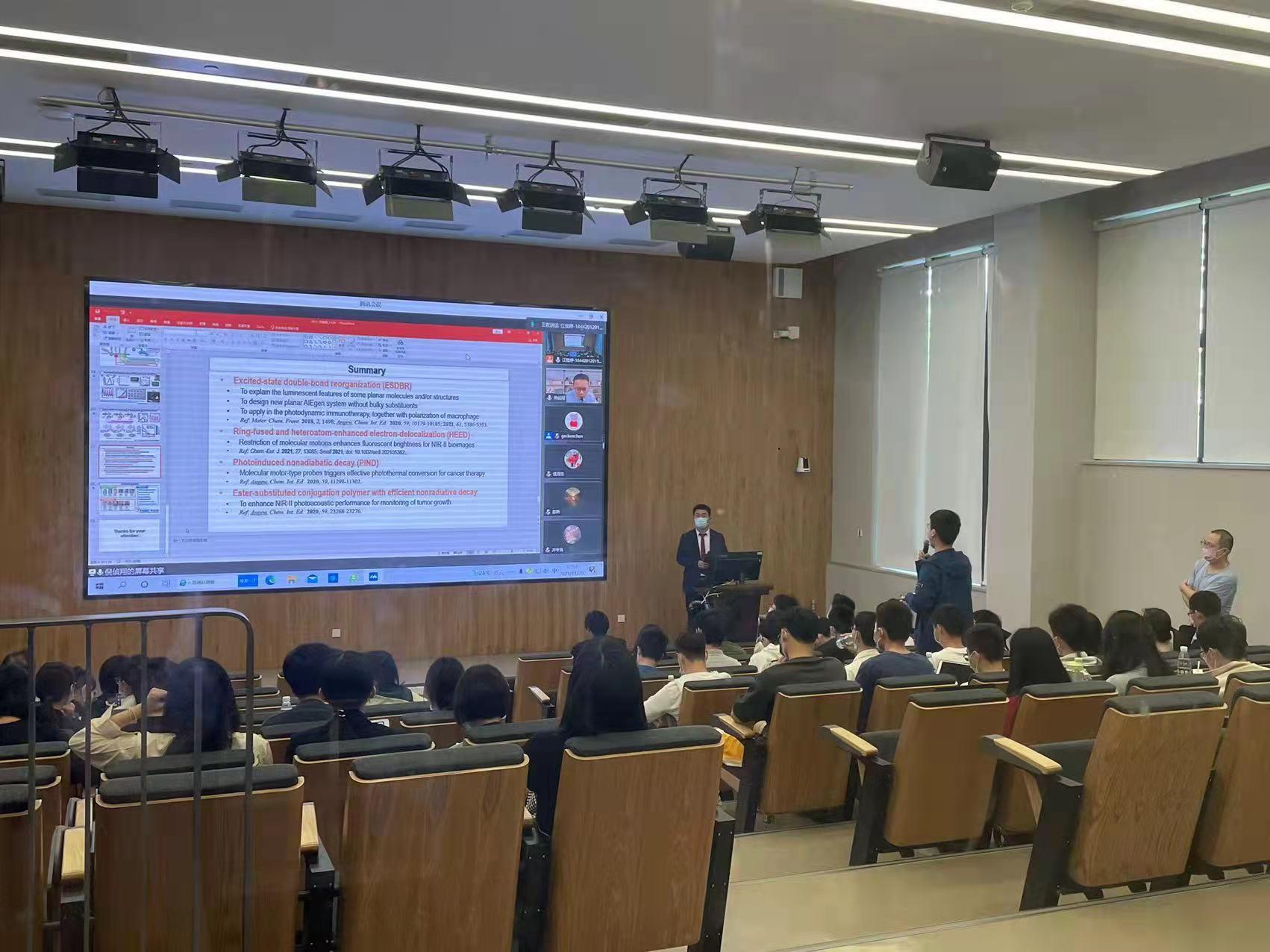
Q&A session during the forum [Photo/College of Health Science and Environmental Engineering]
Drafted by Olivia(赖丽伟)/ International Cooperation & Student Affairs Office
Revised by International Cooperation & Student Affairs Office
Edited by International Cooperation & Student Affairs Office
